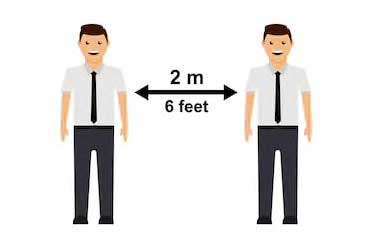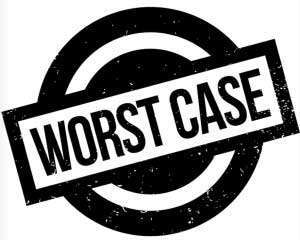Keeping You and Your Tenants Safe
The government has announced recommendations and restrictions to ensure the safety of both tenants and landlords during the pandemic.

Social Distancing in Shared Spaces
Restricting Usage of Common Areas – Limiting the use of common areas by tenants or guests. Rent does not have to decrease because of the closures of public spaces like gyms, pools and game rooms. These are meant to be temporary closures and thus are not required to effect rent.
Keeping these public areas scares and empty can be marked by using postings on the entrances of these public spaces. In the case of a shared laundry room, it is recommended to limit the number of people allowed to access them at one time. Landlords should recommend that if tenants have private doors to the outside, they should use those instead of public hallways. If this is not an option, keeping 6 feet apart while using the shared hallway to and from the exits.

Keeping Communication Open
To ensure direct content is kept at a minimum, the use of email communication is recommended to serve documents. Text, however, is not an approved method for serving a document and should only be used for communication outside of any official documentation. The Landlord’s rights to entry have temporarily been restricted; thus, email should also be used to request consent form the tenant to enter their unit. The only exception is should there be a case of an emergency requiring the entrance into the unit. Additionally, all regularly scheduled maintenance should be rescheduled to avoid the need to enter a tenants unit during the global crisis.
For the safety of all tenants and landlords, the viewing of a unit should be rescheduled where possible as well. With the exception of empty units, consent must be acquired from the tenant for entry into the unit for viewings. If it is possible to do the viewing remotely through skype or google hangouts, it is recommended to limit the number of people who are not self-isolating and preventing the potential risk of infections.
Communication with your tenants is key throughout this time, but it is strongly advised everyone tries to avoid all direct contact wherever possible.

Planning for The Worst
Inform your tenants that if they test positive, they must remain in their unit under self-isolation for at least 14 days. Tenants are not required to inform you that they have tested positive, but if they do, ask if you can send a warning out to the other tenants via email. Additionally, if you are aware of an infected tenant, take care to avoid entering their unit and allow them time to quarantine themselves to avoid the infection of other tenants in the building. This should be handled while still respecting the privacy of the infected person(s).
During the State of Emergency and global pandemic, it is imperative we all protect ourselves and our neighbours at this time. Information is coming out every day, and it is strongly encouraged that you keep an eye on the government website, as well as local news, to be sure you are up to date on what is changing.


